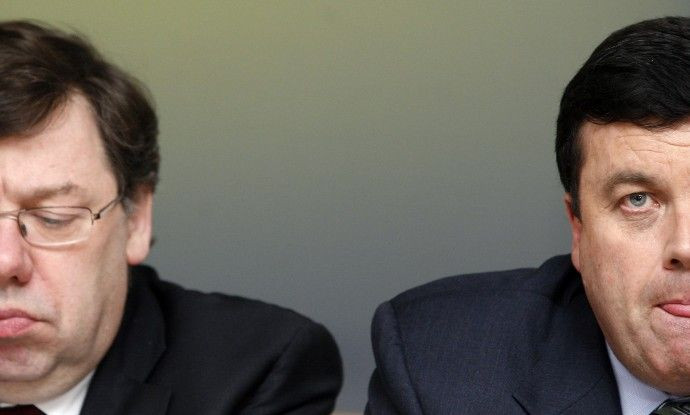Ireland inching closer to bailout package

Ireland is “inching closer” to some kind of bailout package from the European Union (EU) and International Monetary Fund (IMF), according to Jan Randolph, director of sovereign risk at IHS Global Insight in London.
A delegation of officials from The IMF and EU is on its way to the Irish capitol of Dublin to undertake due diligence in order to clearly identify the depth and magnitude of Ireland’s fiscal woes prior to the release of any formal resolution plan.
The Telegraph newspaper of UK is reporting that a rescue package of “at least” 80-billion euros is likely to come out of this mission.
The potential aid package, Randolph stated, will be used to inoculate Ireland’s problems “from spreading onto others and to shield the country while it resolves the banking system problems from within.”
Indeed, Irish borrowing costs have held steady at record high levels over the last few days as rumors of such a rescue package have intensified.
“The latest rumors suggest that Ireland is under pressure to accept a... bailout as the least cost option for all involved,” Randolph said.
Randolph said that while Ireland's government is the most pre-funded of Eurozone sovereign nations and does not need to tap the bond markets until July 2011 to refinance its debts; contagion in the form of higher borrowing costs for other Eurozone members has provoked a strong official EU reaction.
“As borrowing costs rise for other Eurozone members because of lingering Irish banking problems, the idea of ring-fencing Ireland with a fire-wall has come to the fore; just as we saw with Greece in May,” Randolph noted.
“Throwing Ireland a credit life-line from the newly set-up European Financial Stability Fund (EFSF) may stem the contagion and emerge as the cheaper option for all involved, despite deep Irish government reluctance and reservations.”
Britain, which is not a member of the EU, but reportedly has high exposure to Ireland’s debt malaise through its banks, has offered additional support to help its ancient neighbor’s banking system.
“It is in Britain's national interest that the Irish economy is successful and we have a stable banking system,” said George Osborne, the British Chancellor of the Exchequer.
Samuel Tombs, UK Economist at Capital Economics. assures that the impact of Irish debt crisis on the British economy is likely to be small.
“The Irish situation could directly affect the UK economy in several different ways,” he said.
First, if an Irish bailout relies on funds from the EU’s European Financial Stability Mechanism to which the UK Government contributes then the UK’s gross public debt will rise and further risk will be absorbed onto the public sector balance sheet.
Second, UK banks may suffer further losses on their exposures to Ireland’s banking sector, businesses and households, either as a result of outright default by borrowers or through further falls in asset
values.
Tombs notes that while UK banks’ have reduced their exposure to Ireland over the last couple of years, it is still the equivalent to around 6 percent of UK GDP and much larger than their exposure to other peripheral euro-zone economies.
Finally, continued weakness in Ireland’s economy could obviously hamper the UK’s already feeble export recovery.
However, these direct costs are unlikely amount to very much.
“For a start, even if the UK Government contributed as much as a quarter of the 80-billion euro bail-out being mooted, that would only add around 2 percent to UK gross public sector debt,” Tombs stated.
Meanwhile, Ireland has already nationalized three of its banks and is expected to take control of more in a bailout that has soared to 45-billion euros. As a result, the country’s deficit for this year will reach a mind-boggling 32 percent of GDP.
However, Ireland government officials have denied seeking any external financial help.
Randolph explains that there is great suspicion that things are even worse for Ireland’s banks than thus far revealed – i.e., there are additional property-related losses still uncovered.
The total costs of cleaning up Ireland’s banks, Randolph estimates, will eventually amount to some 30 percent of Irish GDP – representing the severity of the crisis. By comparison, in the UK and US the ultimate banking crisis costs will be only about 10-15 percent of GDP.
The chances of an Irish default, Randolph contends, are nil.
“The IMF and Eurogroup will not let Sovereign Ireland default, we are not anywhere near there yet,” he said.
“The contagion consequences of such an event would be enormous and unmanageable in any case. Sovereign Ireland will probably end up carrying a heavy debt burden of about 120 percent of GDP post-crisis and bank clean-up; but this is manageable in principle and can be worked-off over many years – as long as GDP growth comes back to lower key debt metrics.”
© Copyright IBTimes 2024. All rights reserved.





















